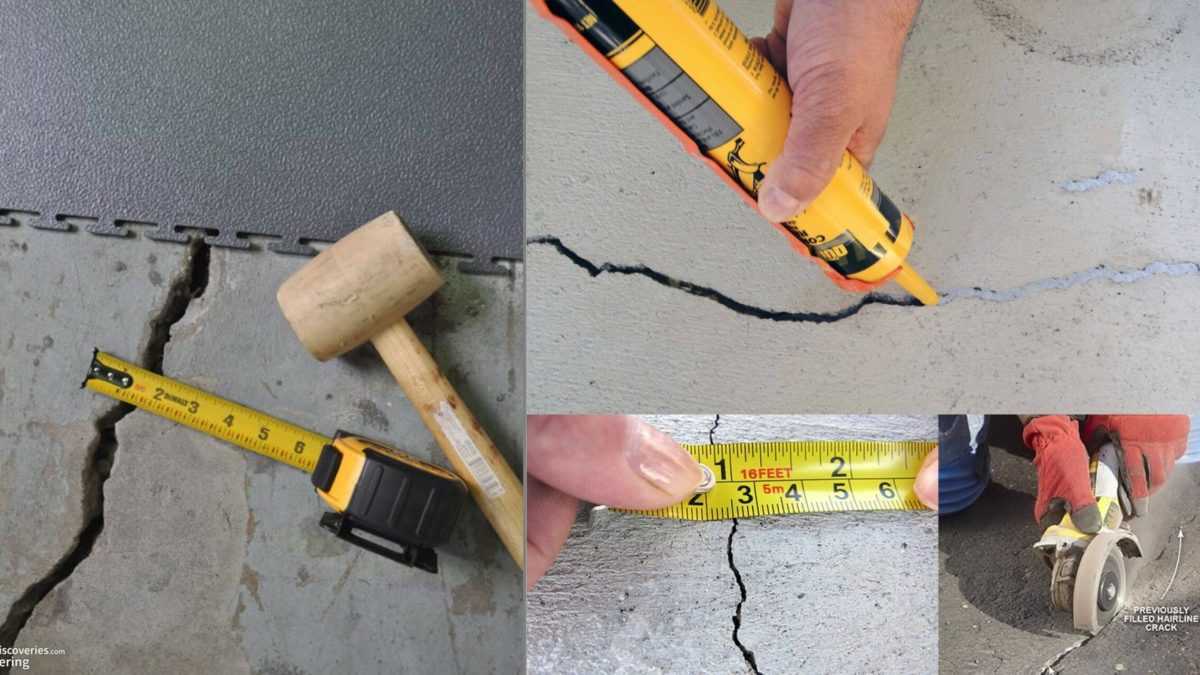Concrete is one of the most robust and long-lasting materials you can use in your home construction if it is installed correctly. However, concrete contractors must adhere to best practices when laying concrete as long-lasting, high-strength, and free of cracks. Concrete isn’t something that happens out of luck.
However, if you observe a crack in your concrete, you need to look for a reason.
6 Common Causes Of Cracks In Concrete
Cracks in concrete can occur for several different reasons. These include:
- Shrinkage
Cemented concrete can shrink if not laid correctly, resulting in cracks. Moreover, if a component is constrained against free movement, tensile stresses arise, which lead to cracks when the concrete dries.
You can lower the chances of this happening by using the best floor coating for concrete and applying it to the floor.
There are two types of shrinkage:
Hydraulic shrinkage
It’s common for concrete to shrink while setting in the open air. This is when evaporation and concrete’s increased strength work against each other, causing the material to crack.
To prevent this from happening, you can hire the services of Garage Floor Coating of Nashville to coat your floor. They coat your floor with the best floor coating for concrete to ensure that it doesn’t absorb excess water.
Thermal shrinkage
This is a problem that primarily affects large buildings. Exothermic reactions, such as cement hydration, generate heat that eventually dissipates. Due to temperature variation, differential deformation occurs, which usually causes cracking.
- Chemical Reaction
Cement’s alkaline nature causes it to react with atmospheric carbon dioxide (CO2), increasing the volume of the ingredients and eventually leading to cracking.
- Elastic Deformation
When the building is loaded, the various components such as the wall, column, beam, and slab suffer elastic deformation. Concrete deformation is determined by the type of construction materials used in building the structure, such as cement concrete blocks, bricks, etc. Cracking occurs as a result of this peculiar concrete deformation.
- Concrete’s Quality
The type of cement used determines the final product’s quality. Hence, only the greatest quality construction materials must be used.
- Reinforcement Corrosion
It is natural for reinforcement to corrode over time due to the atmosphere’s response to it. Other factors include high chloride, carbonation, moisture reactivity, and a lack of suitable storage measures.
- Design
Another critical cause behind concrete cracks is poor structural design and specification. Excessive cracking can be caused by design and detail errors such as insufficient reinforcement, poor foundation, precast members and slabs design, improper material selection, and a lack of suitable contraction joints.
Prevent Cracking With Reliable Floor Coating For Concrete From The Experts
Cracks can occur for various reasons, not all of which are related to poor quality concrete. Cracks larger than one of your fingers extending through the depth could indicate serious problems.
Moreover, there is no mechanism to prevent concrete from contracting or expanding. As a result, the possibility of cracks will never entirely disappear. However, you can reduce the likelihood of discovering a fracture in your garage floor. One of the most popular ways to do that is by getting it coated with epoxy.
Garage Floor Coating of Nashville offers unparalleled expertise in floor coating. You can connect garagefloorcoatingofnashville.com for a quick consultation about your floor condition, and don’t forget to ask about their professional flooring solutions.
Categories
Recent Posts
Advertisement


